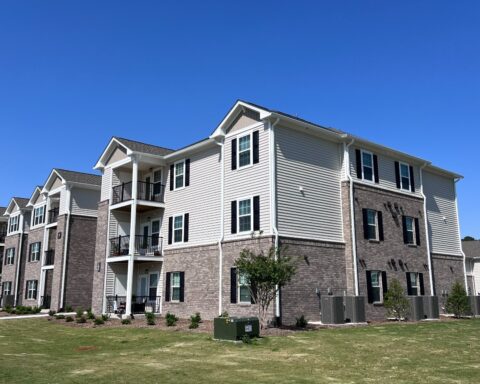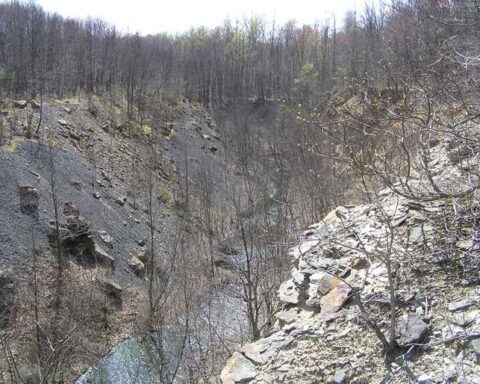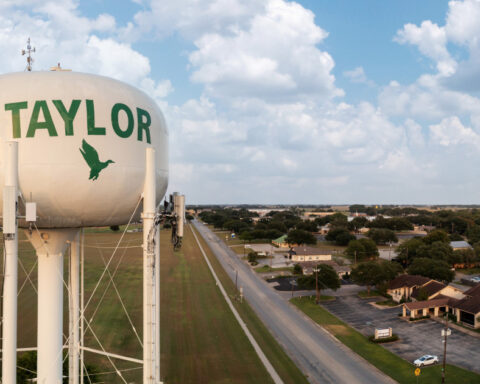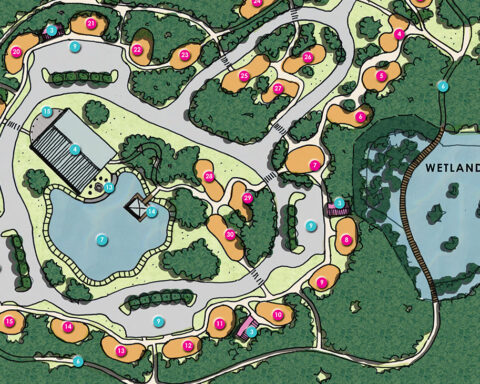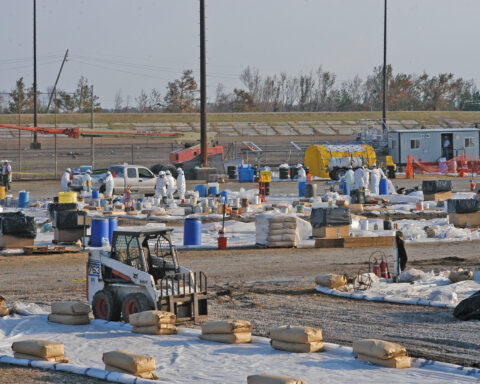The National Football League’s Chicago Bears hope a coalition of historically underutilized business and labor organizations will help the team secure the public funding it will need to complete a proposed $5 billion mixed-use stadium project.
Team and city officials recently unveiled plans for the Burnham Park Project, which will include a multipurpose stadium located just south of where Soldier Field currently stands off Chicago’s lakefront.
Contractors and construction companies seeking to secure contracts for the Bears proposed project will be required to support and employ a diverse workforce backed by labor unions.
“The Chicago Bears pledge to engage local minority-, women-, and veteran-owned construction businesses to bring the stadium to life—ensuring a union workforce reflective of Chicago’s diversity,” the Bears said in a statement.
The Bears plan to invest $2 billion, with the remaining 3 billion to come from public coffers to build a publicly owned multipurpose stadium with parks and other attractions.
The plan calls for $3.2 billion for the new stadium and $1.5 billion for new infrastructure, which the Bears will turn to Chicago’s union-backed trades to build if Illinois lawmakers greenlight funding for the project.
“A development of this size will put Chicagoland to work, creating thousands of new construction jobs and apprenticeships, including for signatory minority- and women-owned construction firms,” said Jim Connolly, business manager for Laborers’ International Union of North America or LiUNA. “Our labor community is eager to be a part of this transformative project, which will take our city to the next level.”
In recent years, large-scale public-private infrastructure projects around the country have been greenlighted by lawmakers on the condition they award contracts to minority and women-owned business enterprises (MWBEs).
The New York/New Jersey Port Authority awarded $2.8 billion of the $19 billion, to-date, for the renovation and reconstruction of New York’s JFK International Airport. New York Gov. Kathy Hochul mandated that state and local agencies like the Port Authority must aim to award 30% of its contract to MWBEs for capital projects.
“This is old-fashioned politics, you’re getting buy in from groups that, if you did not get their buy in, it can look very bad as far as optics go, and makes it harder to get lawmakers to buy in,” Geoffrey Propheter, a University of Colorado-Denver public affairs professor, who researches sports facility economics, told Government Market News about the Bears announcement. “So part of that is, let’s get ahead of this and bring in groups that are politically influential in the policy process.”
In Upstate New York, Erie County made an agreement with the NFL’s Buffalo Bills and the firms building the team’s new $1.5 billion stadium to award 36% of all contracts to minority, women and service-disabled veteran businesses.
The Bills have made mixed progress on those contracting goals. Although the team has awarded 17.4% of its contracts to minority-owned businesses – surpassing a goal of 15% – so far the team has reached 8.4% of its 15% goal for contracts awarded to women-owned businesses and 3.1% of its targeted 6% goal for veteran-owned businesses.
The Bears did not make clear how many contracts will be allocated to MWBEs for the construction of its new stadium.
The Bears’ economic forecasting firm HR&A estimates the stadium and museum campus infrastructure improvements will generate $4.2 billion of direct capital investment, resulting in 43,000 regional construction jobs. The entire stadium district will have a construction economic impact of over $8 billion, and $3.5 billion in wages.
The new district will provide Chicago with 2,300 Chicago jobs annually and 4,200 regional post-construction jobs, according to HR&A. The new jobs created by the upgraded stadium district will have $248 million in annual economic impact for Chicago and $456 million for the region, the firm has forecast.
The Bears want to break ground on the project in the summer of 2025 with a planned opening in the summer of 2028. The construction plan for the project has three phases.
The first phase involves building out the stadium, its transportation, roadways and utilities and is estimated to cost $325 million. Phase 2 will include a bus depot expansion, new parks and playfields, with a cost of $510 million. The $665 million third phase includes transportation improvements, retail and public attractions.

Photo by Moses8910










